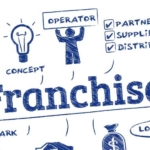Planning a franchise expansion in Italy: the legal due diligence
Legal features have a very significant impact on a franchise expansion project in Italy. Therefore, initial legal due diligence on the Italian environment is essential for any foreign franchise willing to expand in the Italian market. When developing into the Italian market, foreign franchisors need to carefully analyze the Italian regulatory environment. The main issues to analyze include: (i) a structure analysis of the franchise expansion project in Italy (direct franchising or master franchising?); (ii) Italian franchise regulations; (iii) Italian IP issues. Wise franchisors involve from the beginning of their expansion project a local franchise counsel in the process of developing their growth strategies abroad. Waiting until a franchise Italian candidate has been identified and a letter of intent (LOI) has been negotiated to involve a local franchise lawyer can result in costly mistakes.
1. The feasibility plan’s legal part
Expanding a franchise in Italy – as well as, in general, internationally – is a capital and resource intensive venture. Among the elements that must be taken into consideration while building a franchise system in Italy, the legal and tax landscape is crucial.
In particular, Italian legal main characteristics have a very significant impact on a franchise internationalization project. Therefore, initial legal due diligence on the Italian environment is essential.
A common belief among foreign franchise brands can be roughly synthetized like this: “Who cares about Italian Law? Our franchise agreement is subject to our law!”. This belief is wrong, mainly for two reasons.
First, although it is possible to regulate the franchising and ancillary agreements that will be stipulated in Italy with reference to franchisor’s own law (for example, the law of Nebraska), this does not exclude that Italian mandatory rules will still be applied (regarding, for example, the franchising disclosure law, as well as labor law, consumers’ protection law, etc.).
Second, if franchise (or master franchise, or area development) agreements to be used in the Italian market are subject to a law different from the Italian one, the various partners involved in the network expansion project in Italy (master franchisees, area developers, franchisees, suppliers etc.) will be very reluctant to sign them. Indeed, they (an especially their lawyers) will not know the franchisor’s foreign law and therefore will probably decide not to join the network.
Therefore, when developing into the Italian market, foreign franchisors need to carefully analyze the Italian regulatory environment, which is different from that of other countries, especially outside the EU. The main issues to analyze to that extent include:
- a structure analysis of the franchise expansion project in Italy;
- Italian franchise regulations;
- Italian IP issues.
2. How to structure the franchise expansion in Italy
One of the first questions that any franchise company will face while approaching the Italian market involves the choice of the structure used for its expansion . This is a critical issue, since the decision about the organizational model for the franchise expansion in Italy is likely to have a dramatic impact on the success of the whole project.
Franchisors have a number of choices to structure their international expansion in Italy. Each structure contains its own set of issues, challenges, and advantages. When choosing an international expansion structure, there are a number of key considerations that must be addressed, such as:
- control on franchise network;
- resources;
- unique characteristics of the Italian market;
- training;
- available human and capital resources;
- tax implications;
- distribution issues,
etc.
No single vehicle is ideal for an Italian expansion. For this reason, most networks grow internationally by using different organizational forms, rather a single one. The two most commonly used models to expand franchises in Italy are:
- master franchising (60% of foreign brand adopt this model);
- direct franchising (30% of foreign brand adopt this model).
3. Direct franchising
In direct franchising, the franchisor sells franchises and attempts to directly support those franchises in Italy, having a direct legal relationship with franchisees.
This form of entering the Italian market is probably the most difficult, unless the franchisor’s country of origin is in close physical proximity and is relatively similar to Italy from an economic and social perspective. While some European franchisors favor this method of expansion in Italy, it’s cumbersome when it comes to more distant foreign markets, such as U.S., Australia or China.
Foreign franchisors that adopt a direct franchise approach for their expansion in Italy usually need to be provided with a number of services by Italian franchise brokers (such as selection and recruiting of franchisee candidates, training, consultancy etc.), regulated by an Area representative agreement. It is also quite common to use a multi-unit franchise approach, selecting an adequate Italian Area developer, with the task of expanding the franchise in a given Italian area, under a specific development plan.
Remaining with the direct franchising solution, a possibility for the foreign franchisor is to open a subsidiary in Italy, dealing directly with franchisees. A subsidiary is a business entity that has stock shares controlled by the franchisor’s company. Establishing an Italian subsidiary provides the foreign franchisor with several benefits, but it also presents some drawbacks (such as costs).
4. Master franchising
By far, the most popular method of entering the Italian market by foreign brands is through the use of one (or more) master franchisees. According to the Master franchising. model, the Italian partner sell franchises having direct legal relationships with the franchisees, by signing sub-franchise agreements with them.
Franchisors are usually compensated in Master franchise arrangements. through a combination of initial territory fees, a percentage of ongoing fees and a percentage of individual franchise fees.
The choice of master-franchising is based mainly on the fact that it requires less resources from the franchisor, involves less risk-taking and lower commitment level than other forms of international expansion, and reduces the complexity of managing the international network by reducing the number of the franchisor’s foreign partners in the Italian market.
In addition, a master franchisee, can be of great assistance in leveraging its local knowledge to help handle some of these local complexities and can reduce the friction in ensuring new franchisees are adhering to brand standards and are building positive brand recognition and affinity in Italy.
However, master franchising agreements have also some risks, mainly coming from the fact that the franchisors lose control over the franchisees, since the Italian master franchisee will be substantially the franchisor’s alter ego in Italy. To avoid o reduce such risks, careful and qualified local consultancy is needed in structuring a Master franchising transaction.
In particular, the development schedule concerning the franchise expansion will have to be drafted very carefully, adopting a prudent and gradual approach to minimize possible failures. In addition, some specific clauses will have to be inserted in the master franchise agreement, to protect the franchisor’s brand.
5. Italian franchise regulation
Despite the fact that franchise agreements are concluded by two subjects who are both entrepreneurs, falling within the scope of business-to-business relationships (B2B), all franchise laws worldwide impose, with some differences, an obligation on the franchisor to provide the potential franchisee with a number of information (duty of disclosure ), pertaining to the franchise, before the franchise agreement is signed.
Such obligation is aimed at ensuring that the future franchisee has all the elements useful and/or necessary to evaluate the content of the franchise agreement in an appropriate period of time (cooling-off period), given its weakness position vis a vis the franchisor.
Italian law on franchising (Law n. 129/2004) it is not different from other franchise disclosure laws, in such sense. According to Italian franchise Law, any franchisor (including foreign franchisors) must provide aspiring franchisees, before the signing of the franchise contract, with a complete copy of the franchise contract to be signed, together with some specific information about key aspects of the franchise network (number of franchisees and their variation, investments by the franchisee, lawsuits within the franchise network, etc.).
However, Italian franchise disclosure law is not exactly the same as that in other countries. As a matter fact, the items to be shown in the disclosure document to be used in Italy can be very different; sometimes foreign franchise laws are more generous to the franchisor than Italian one (such as Spanish law), sometimes less generous (such as US law).
Therefore, it is crucial that the disclosure franchise document used for the franchise expansion in Italy is drafted very carefully, with the consultancy of a local qualified law-firm, to avoid possible lawsuits from the franchisees. Moreover, it is important to avoid possible penalties for misleading advertising by the Italian Competition and Market Authority ( AGCM ).
Drafting and using a lawful and appropriate franchise (or preliminary franchise) agreement( direct franchise agreement, Master franchise agreement, Area development agreement, Area representative agreement, etc.) for the franchise expansion in Italy is, of course, very important as well.
6. IP issues
Another important aspect that a legal due diligence about the expansion of a foreign franchise in Italy should address concerns intellectual property issues. IP rights, in particular trademarks (but also copyright and patents), are some of the most valuable assets of a franchise system. Therefore, one of the first points of legal investigation before entering the Italian market should be with respect to the availability of the franchisor’s trademarks for use in that market and the ability to protect and grow the brand in the Italian country.
IP rights in Italy are protected according to the Law Decree n. 30/2005 (Industrial Property Code), as well as by the Italian Civil Code. Italy is also party to several international conventions, including the Paris Convention for the Protection of Industrial Property Rights, the Agreement on Trade-Related Aspects of Intellectual Property Rights, the Madrid Agreement and the Madrid Protocol on the International Registration of Trademarks and the EU trademark system.
Trademarks that may be registered in Italy may consist of any sign that is capable of being represented graphically, including words, designs, letters, numerals, sounds, shapes of goods or their packaging and color shades. However, the Italian Patent and Trademark Office (IPTO) may exclude from registration a number of signs, in particular those without distinctive character. Moreover, third parties can contest trademark’s registration in a number of cases, including signs which may infringe third-party exclusive rights and signs which are identical or similar to earlier registered trademarks, where this may cause confusion among the consumers.
Therefore, it is essential that the franchisor’s local legal advisor carefully checks if and how the franchisor’s trademark can be adequately protected in Italy, as well as licensed to its franchise partners (master franchisees, area developers, franchisees), drafting the appropriate agreements to protect franchisor’s brand.
Domain names are also part of an overall IP protection program. The possession of a trademark does not give any rights to specific domain names, although a domain name may give rise to trademark rights if it acts as a source indicator. Domain names are registered with a registrar accredited by the Internet Corporation for Assigned Names and Numbers and their use may be licensed by the franchisor to the franchisee. The franchise contract to be used for Italy should contain a specific provision on domain name usage and franchisee websites.
Finally, the legal due diligence should also verify if and how other important franchisor’s intellectual property assets can be protected in Italy, in particular know how.
In fact, most franchise systems are based on trade secrets and confidential know-how , rather than patents or registered designs; example of confidential know how include recipes, customer lists, business operating methods, procedures etc. Sometimes a franchise can be based on a unique product protected by a registered design. Often, the type of know how used in a franchise is not patentable. It is, therefore, particularly important to check if and how the franchisor’s confidential know how can be adequately protected in Italy.
7. Why is early local legal advice essential to the franchise evaluation process?
Wise franchisors involve, from the beginning of their expansion project, a local franchise counsel in the process of developing their growth strategies abroad. This is true also for a franchise expansion in Italy. The obvious reasons for this often are overlooked by budget-conscious, but shortsighted, franchisors.
Legal issues such as those briefly examined above (structure of the franchise expansion, franchise regulations, IP, tax issues etc.) usually have a considerable effect on the time, costs, and viability of a franchise expansion project, and need to be carefully analyzed before starting to execute the project. Waiting until a franchise Italian candidate has been identified and a letter of intent (LOI) has been negotiated to perform a legal due diligence and to involve a local franchise lawyer analysis can result in costly mistakes.
Although they may be “nonbinding”, LOI express the understanding of the parties about important issues, including franchising strategy, e.g. master franchise or area development franchise, fees, territory, development schedule, renewal and options rights, and so on. The resources required, time needed to accomplish these goals and the effect of Italian law on these issues require a preliminary understanding of the legal and related cost aspects of the decisions.
Without the benefit of an analysis by local qualified franchise counsel, franchisors may either prematurely lock themselves into unwise terms or be forced to walk away from relationships that could have been productive, if unrealistic commitments had not been inserted in a LOI. Guidance from experienced local franchise counsel about the parameters of franchising and related Italian laws will help the foreign franchisor to understand the cost and time required to complete a franchise transaction, and to launch the first franchised business successfully in Italy.
To perform the requisite legal due diligence, international franchise lawyers need the time and resources to research the issues outlined above, as well as the opportunity to identify, with assistance from local counsel, the Italian regulations that apply specifically to the type of business the franchisee will operate. A franchisor’s domestic franchise counsel will rarely be able to independently perform the needed research and analysis, and, in any case will rarely have the requested experience and knowledge of the Italian environment. Therefore, the franchisor must find and rely upon an experienced local franchise counsel.
Avv. Valerio Pandolfini
For other in-depth articles on issues relating to franchising: visit our blog.
The information contained in this article is of a general nature and is not to be considered an exhaustive examination of the various issues, nor is it intended to express an opinion or provide legal advice. Specific legal advice must be provided with regard to individual cases.



